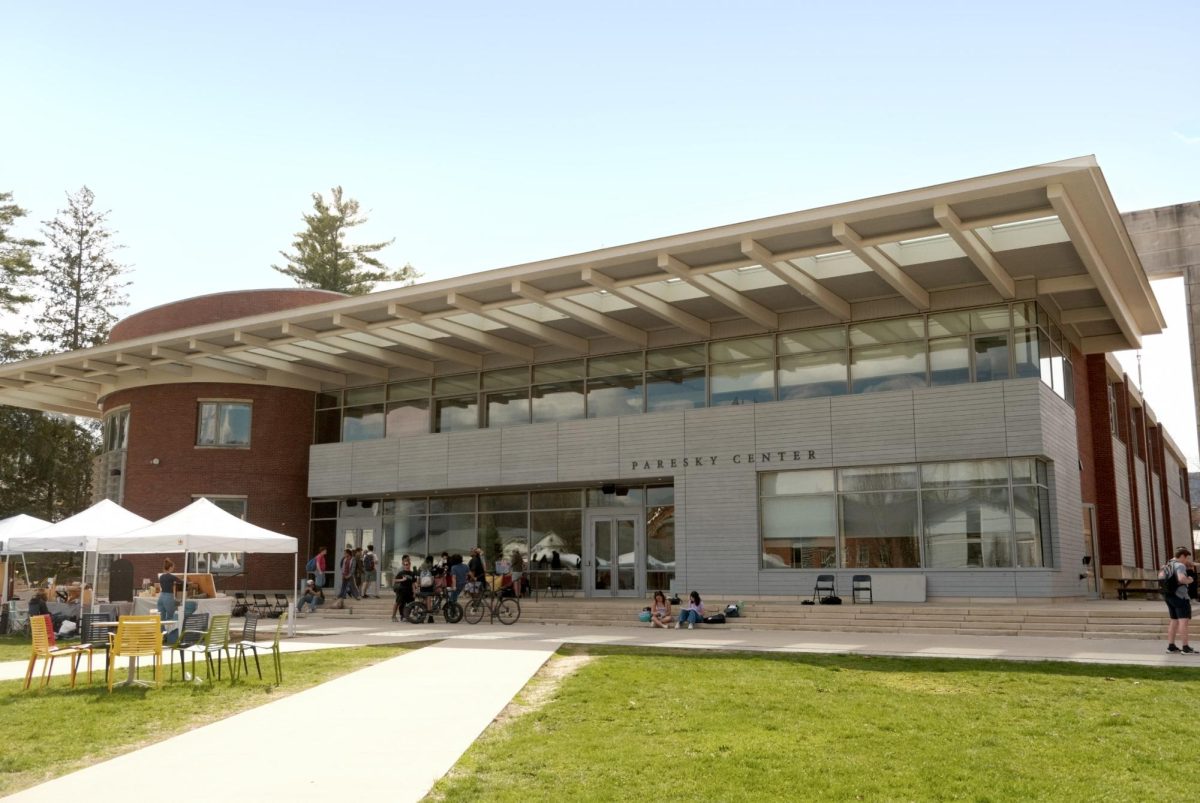The Advisory Committee on Shareholder Responsibility (ACSR) released a report on May 23 recommending against divestment from companies that sell weapons or reconnaissance tools to the Israeli Defense Forces (IDF) and against articulating public ethical standards for the College’s investments. The report also recommended that the Investment Committee consider increasing transparency surrounding investment decisions to the extent it deems possible.
The ACSR, a non-standing committee, convened in January in response to a November 2023 request by Jews for Justice (J4J). On Feb. 9, J4J representatives met with the ACSR and presented three demands: First, that the College institute investment criteria that “works to screen out companies that support the ongoing violence in Israel/Palestine,” such as suppliers of weapons to the IDF; second, that the College apply environmental, social, governance (ESG) standards to its investment strategy and publicize which companies or industries the College is excluding from its investments; and third, that the Faculty Steering Committee establish the ACSR as a standing committee.
On Feb. 29, Professor of Philosophy Steven Gerrard submitted a second request to the ACSR, urging them against recommending divestment. Gerrard wrote that divestment as a reaction to any issue violates the College’s ethical imperative towards “institutional restraint,” or allowing students to learn to think for themselves, and incorrectly elevates some global issues while diminishing the importance of others.
Gerrard declined to comment on the ACSR’s final report. Provost Eiko Siniawer, chair of the ACSR, also declined to comment.
The ACSR’s recommendations come on the heels of months of advocacy from campus organizers demanding that the College divest from weapons manufacturing and increase its fiscal transparency. From May 1 to May 13, J4J and Students for Justice in Palestine (SJP) maintained an encampment on Sawyer Quad to demand that the College improve its fiscal transparency and divest from weapons manufacturers supplying Israel. SJP decided to dismantle the encampment after President of the College Maud S. Mandel and several members of the Board of Trustees agreed to two meetings with SJP, J4J, and at least 19 members of the Board.
The ACSR’s report offers responses to both these requests and issues a final recommendation to the Investment Committee of the Board of Trustees.
First, the report outlines guidelines for evaluating requests. It states that changes to the College’s investment strategy should be supported by “broad and deep consensus view” on campus, should be backed by considerations that are unlikely to change in the short term, and should offer “substantial impact” on the issues motivating the request while avoiding “negative, collateral impacts.”
In the report, the ACSR concluded that J4J’s first request — divestment from weapons manufacturers and IDF suppliers — failed to meet these criteria. “The ACSR does not see a demonstrable, shared understanding among the college community of the current issues underlying the request for divestment,” it wrote. “The ACSR did receive feedback from some student groups, some faculty, and some staff in support of the Jews for Justice requests. But oppositional perspectives within our community have also been expressed. The recent tumult on college and university campuses is but one reflection of the contentious nature of these complicated and emotionally charged issues.”
In a statement to the Record on May 24 and posted to its Instagram on May 25, J4J described the committee’s reasoning as “less than satisfying.” “The committee cites a lack of consensus on this issue among the campus community, but does not cite a metric it has used to determine this nor do they back up that reasoning with any data,” it wrote.
The ACSR also pushed back on the potential impact of divestment. “While divestment could have symbolic meaning to certain members of the college community, the ACSR thinks this symbolic gesture would change little, if anything, about the situation with which Jews for Justice is concerned,” the committee wrote. “In general, the ACSR does not advocate using changes in investment strategy for solely symbolic gestures.”
J4J expressed disagreement with the ACSR’s conclusions. “Even if the monetary impact of divestment is ‘very small,’ as the report suggests, we still believe that any complicity in genocide and apartheid is completely unacceptable and must be dealt with immediately,” it wrote to the Record.
The ACSR also wrote that it does not recommend that the College adopt J4J’s second request of ESG standards for all investments and a public, exclusionary list of what the College “would not invest in.” In part, the committee pointed to the difficulty of establishing shared values and guidelines for ESG restrictions on investment. “While the ACSR is deeply interested in the intersection of values and investment strategy, as reflected in its charge, the committee hesitates to say more about ESG investing because the college does not have an exhaustive list of clearly defined, specific institutional values,” it wrote.
“It is the understanding of the ACSR that what might broadly be called ‘ESG factors’ are weighed, as appropriate, as one consideration among many in the [fund] manager selection process,” it continued.
In its statement, J4J wrote that it believes it is the College’s responsibility to adopt public ethical stances. “The committee’s refusal to recommend the investment office give the college community any set of public guidelines assuring the investment office’s commitment to global citizenry is deeply shameful,” it wrote.
The ACSR endorsed J4J’s request for increased transparency in the College’s investment portfolio, to the extent that the Investment Office can provide it. “The ACSR also suggests that the Investment Office could be more clear about how it makes investment decisions, especially to those members of the college community who might not be familiar with the world of investments,” they wrote.
Finally, the report did not recommend that the Faculty Steering Committee establish the ACSR as a standing committee, which was J4J’s third request. The ACSR was a standing committee from its creation in the 1970s until 2018, when the Faculty Steering Committee decided that the ACSR no longer needed to meet regularly as the College invested primarily in hedge funds and did not hold direct shares in publicly traded companies, according to the report. The report articulated the ACSR’s belief that the reasoning from 2018 still holds and the committee need not meet regularly.
In its statement, J4J agreed with the report’s reasoning. “In conversations with various faculty members, we have realized the inefficacy of standing committees outside of direct calls for changes in policy,” it wrote.
“We want to be clear that our fight for divestment does not end with this report,” it continued. “We are looking forward to presenting our case for divestment to the Board of Trustees and to continue advocating for what we know is right until divestment is won.”















